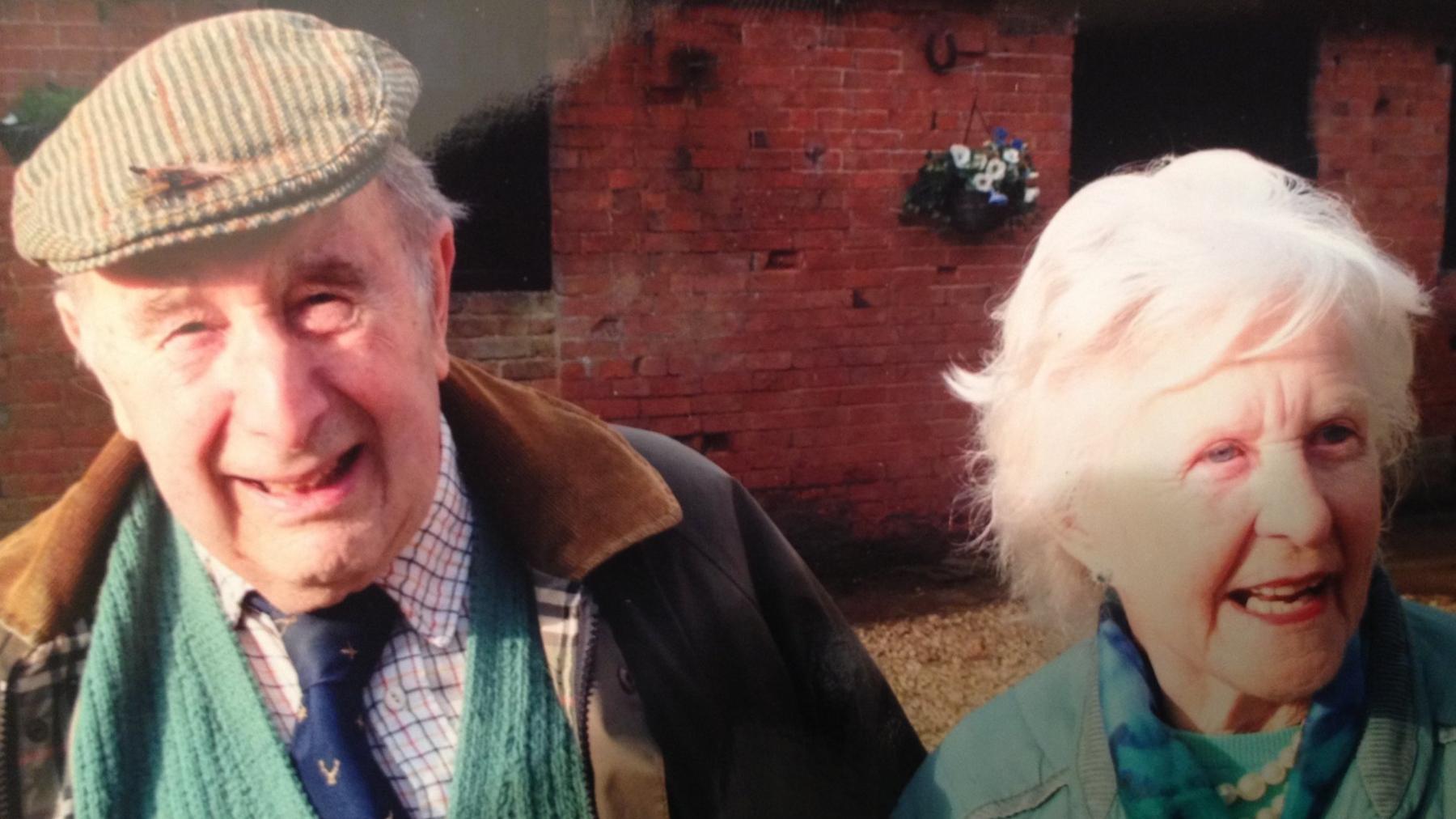Apology over broken hip woman's two-hour ambulance wait
- Published
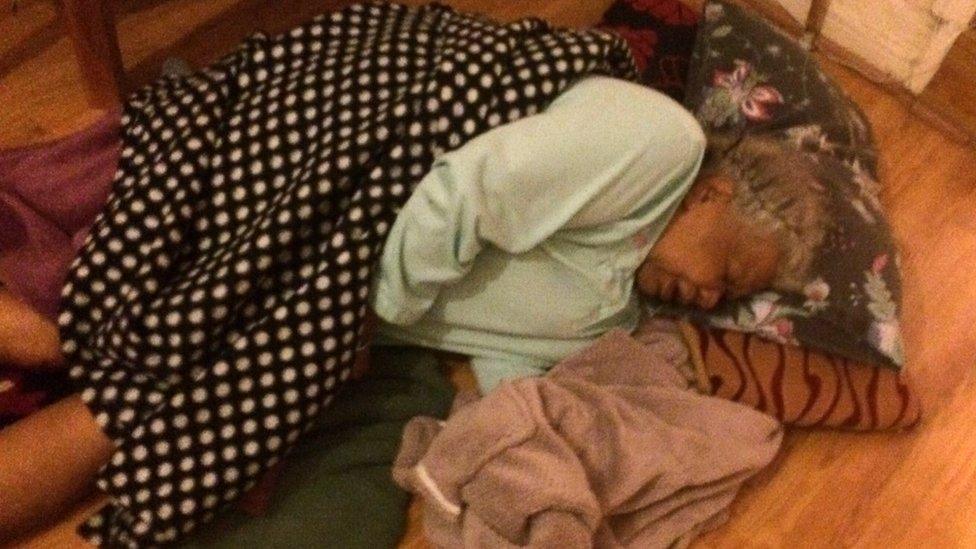
Gloria Joseph had to lie on the floor for two hours with a fractured hip while waiting for an ambulance
A man said he feared for his mother's life after she "went into shock" while waiting two hours for an ambulance.
Gloria Joseph, 80, from Leicester, fractured her hip after a fall and could not move from the floor.
Her son, Conrad Dore, said he was "angry and scared" while the family waited because he believed she "didn't have much time left".
East Midlands Ambulance Service (EMAS) said the healthcare system was "under extreme pressure" on Monday.
Updates on this story and more from around Leicestershire
Mr Dore, who is first aid trained, said he called the ambulance service several times as his mother "was in too much agony".
"She was shaking, one side of her body was really hurting and the pain started to go up into her shoulder - she started to get pins and needles," he said.
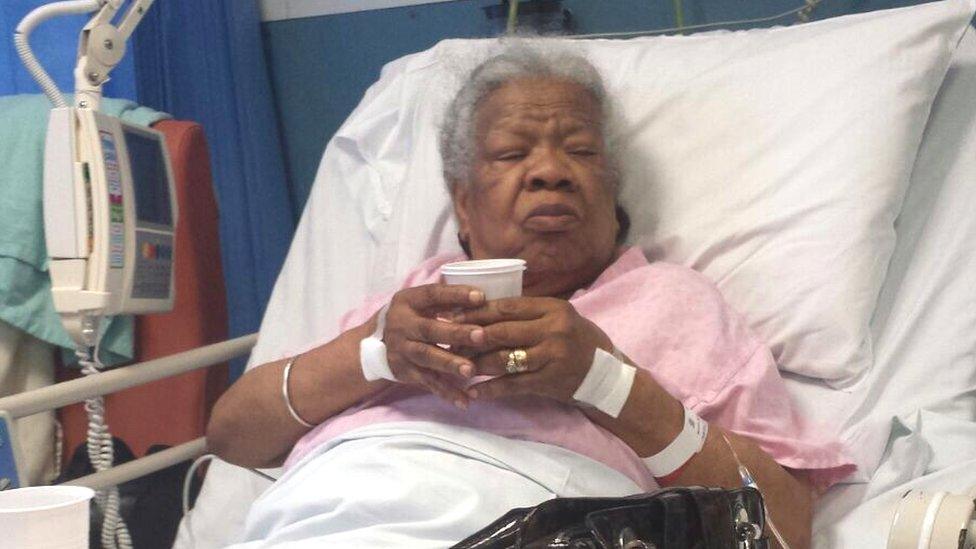
Gloria Joseph is now recovering from a broken hip at Leicester Royal Infirmary
He added the experience was "very distressing" for his mother, who is a diabetic, and the family.
Dr Bob Winter, medical director of EMAS, said: "Over the day we took about 2,400 emergency calls, that's one every 37 seconds.
"The wider healthcare system was extremely busy and that had a knock-on effect on our service.
"We had 10 ambulances waiting at Leicester Royal Infirmary to hand over patients."
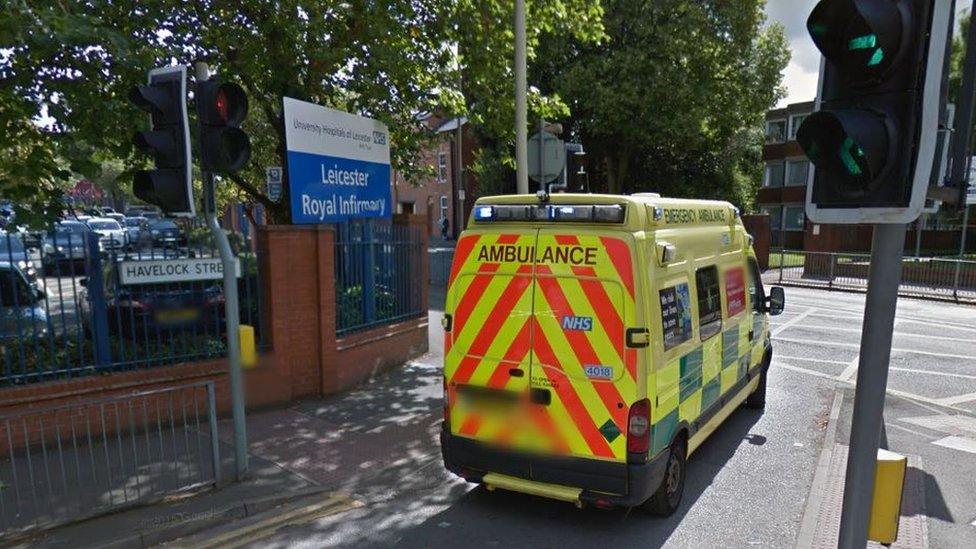
EMAS said ambulance crews were held up waiting to hand patients over at Leicester Royal Infirmary
Richard Mitchell, chief operating officer at Leicester's Hospitals NHS Trust, said delays in providing patients' care was "unacceptable" and the hospital had recently had its "highest number of emergency admissions in one week".
"To dramatically reduce the number of ambulance handover delays, we must reduce the numbers of people needing emergency care.
"I would like to say sorry to anyone who has experienced a delay."
EMAS, which responds to 616,000 emergency and urgent calls each year, failed to hit targets to reach the highest priority calls for a fifth year running in 2014/15.
- Published13 October 2015
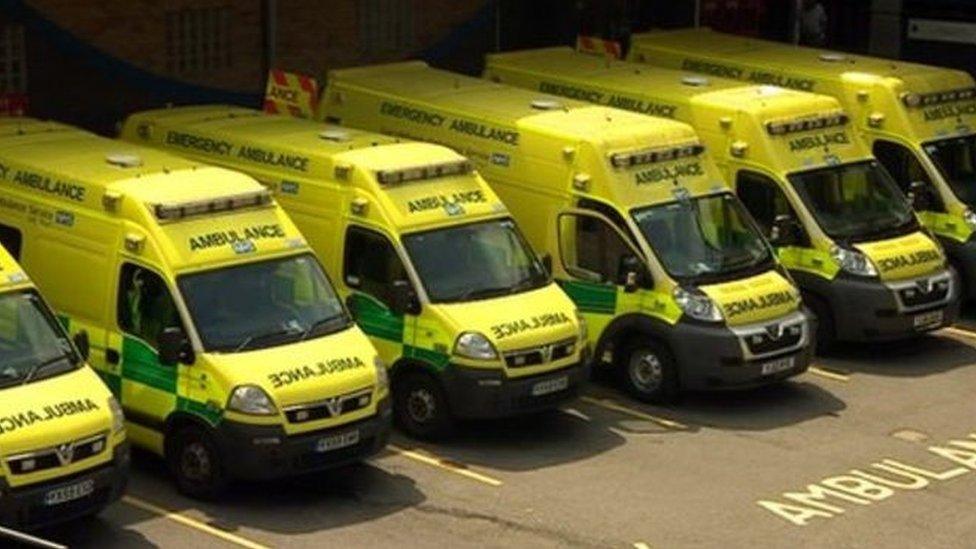
- Published27 September 2015
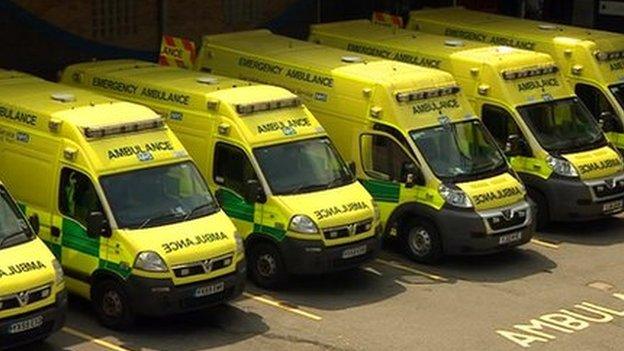
- Published21 July 2015
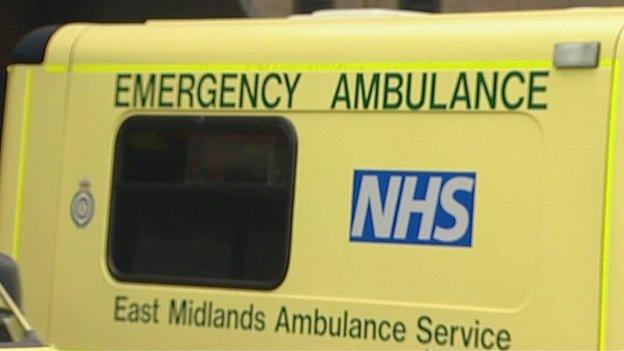
- Published17 June 2015
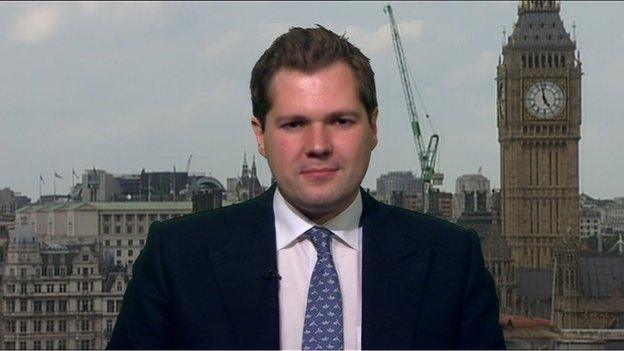
- Published16 June 2015

- Published22 December 2014
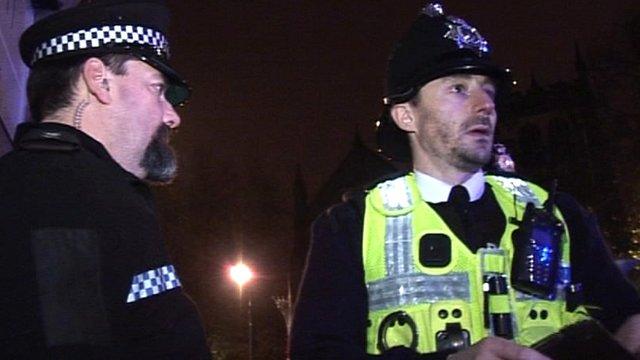
- Published24 October 2014
